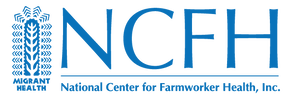|
Providing health education to patients can be a challenge. Most of the time spent with a patient at a health center is limited. For this reason, having effective health education tools available is very important. There are many traditional printed materials like brochures, pamphlets, and fotonovelas to choose from. Most of the time, staff at health centers and outreach staff only have access to these types of materials and, therefore, utilize only printed materials for their patient education. But, did you know that there are other delivery methods that can help make health education more interesting? Audiovisual tools, like digital stories, are now being used in the health arena and are helpful for different reasons. For example, digital stories can be shared with family and friends. They are portable and can be accessed at any time. They also allow users to learn at their own pace and receive feedback on their progress. According to the AHEC Clear Health Communication Program at the Ohio State University, these tools are also appropriate for users who are visually impaired, have limited reading skills, or who want to learn about sensitive health topics in a shame-free environment, becoming an effective use of audiovisual material. Digital stories have the ability to engage users in the learning process. NCFH has produced a collection of digital stories to meet the need for effective educational tools, for use by the health organizations as well as the general public. These health education tools can be used during outreach, clinical setting teaching, or one-on-one teaching to outreach and health center staff. Our digital stories are free to use and are easily accessible via our website or our YouTube channel. They are bilingual, narrated in Spanish with English subtitles. Topics range from how to access a health center to a personal story on how asthma can be managed, to learning about the Pap Test. Digital stories are a valuable health education tool that should be used more. NCFH is trying to make this happen. By: Joanna Arevalo
Comments are closed.
|
The National Center for Farmworker HealthImproving health care access for one of America's most vulnerable populations Archives
July 2024
Categories
All
|

 RSS Feed
RSS Feed